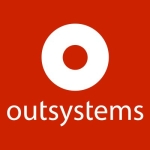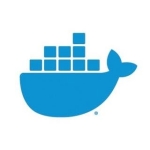What is our primary use case?
My organization's primary use case for Oracle Application Express (APEX) is application development, as it's an Oracle builder software so that you can develop applications on it for the Oracle database.
The application developed on Oracle Application Express (APEX) is used for patient registrations, clinical documentation, and electronic medical records. It's also used for insurance purposes, billing claims, and coding. The finance team also uses the application that's on Oracle Application Express (APEX) for reporting, and the marketing team uses it for the CRM that's been developed by my organization. The nursing and doctor teams also have modules on Oracle Application Express (APEX), so in terms of use cases, it's used by different departments of my organization.
What is most valuable?
What I like best about Oracle Application Express (APEX) is that it doesn't require hard coding for reporting and building applications. It's a GUI-based application builder that even end-users with little development and language knowledge can develop applications on Oracle Application Express (APEX). The software is also very user-friendly, which I find valuable.
What needs improvement?
An area for improvement in Oracle Application Express (APEX) is the slow reporting because pulling the report for two months, one year, three years, etc., is very slow. It takes more than thirty minutes to download the report.
There's also room for improvement in integrating Oracle Application Express (APEX) with other vendors, such as open-source solutions through API integration. I believe Oracle is working on this feature, or the issue could be because my organization is using an older version of Oracle Application Express (APEX).
The Oracle database also has to be improved because it's still lacking in some packages, triggers, and indexes.
Process or workflow automation is a feature I'd like to see in the next version of Oracle Application Express (APEX). My organization has a lot of processes because the patient has to click a button to trigger a consultation with the doctor, so if the process is automated, that will make Oracle Application Express (APEX) better for my organization.
For how long have I used the solution?
I've been using Oracle Application Express (APEX) for eight years, but I'm not a developer. I'm just a front-end support person.
What do I think about the stability of the solution?
Oracle Application Express (APEX) isn't a reliable solution, at least the current version used in my organization. You must monitor it every day or every two days because it can be down anytime. My organization has a daily backup for it and even sets up emergency servers because the server has downtime for thirty minutes to one hour, or randomly, once or twice a month.
Oracle Application Express (APEX) can't seem to handle the user requests sent to the server, so the server was upgraded, but this could be because it's an old version, and if my organization upgrades to the new version of Oracle Application Express (APEX), maybe it'll sort out the stability issue.
What do I think about the scalability of the solution?
Oracle Application Express (APEX) isn't a scalable solution because my team had to check a workaround to be able to scale it. For example, if the database reaches 80% or if it has a lot of users in one day, there's no scalability option for those instances.
How are customer service and support?
I haven't tried contacting the technical support for Oracle Application Express (APEX) because a different team contacts Oracle support.
How was the initial setup?
Oracle Application Express (APEX) is very easy to deploy. I deployed it on my new branch, and it only took me five to six hours to complete the deployment.
What about the implementation team?
I implemented Oracle Application Express (APEX) for a new branch, so the implementation was in-house.
What's my experience with pricing, setup cost, and licensing?
To my understanding, my organization is using the free version of Oracle Application Express (APEX), but I'm unsure because I haven't checked the pricing or licensing cost for it.
Which other solutions did I evaluate?
My organization was new to the business when it decided to use Oracle Application Express (APEX). Management realized there was a better solution that was also Oracle-based, without the issues encountered by Oracle Application Express (APEX). Hence, there's a plan to switch to the other Oracle solution next year in the first quarter.
What other advice do I have?
I work in the healthcare sector, and the EMR system I'm using is developed on Oracle Application Express (APEX). My organization also uses Microsoft 365, but just the basic version for exchange purposes.
I'm a user of Oracle Application Express (APEX). I'm using a very old version of Oracle Application Express (APEX), version 4.2.
I'd advise anyone looking into using Oracle Application Express (APEX) to try the new version of the solution rather than the old version because the new version is good. Oracle has updated the forms and reports in the latest version and integrated many APIs for open-source solutions. The new version of Oracle Application Express (APEX) is more advanced than the older version because it now has SQL server compatibility, so I recommend it.
My rating for Oracle Application Express (APEX) is six out of ten, particularly for the current version used in my organization, as it has a lot of issues, but as I've said, it's an old version that needs to be updated to the latest one.
My organization is an Oracle customer.
Which deployment model are you using for this solution?
On-premises
Disclosure: My company does not have a business relationship with this vendor other than being a customer.






















